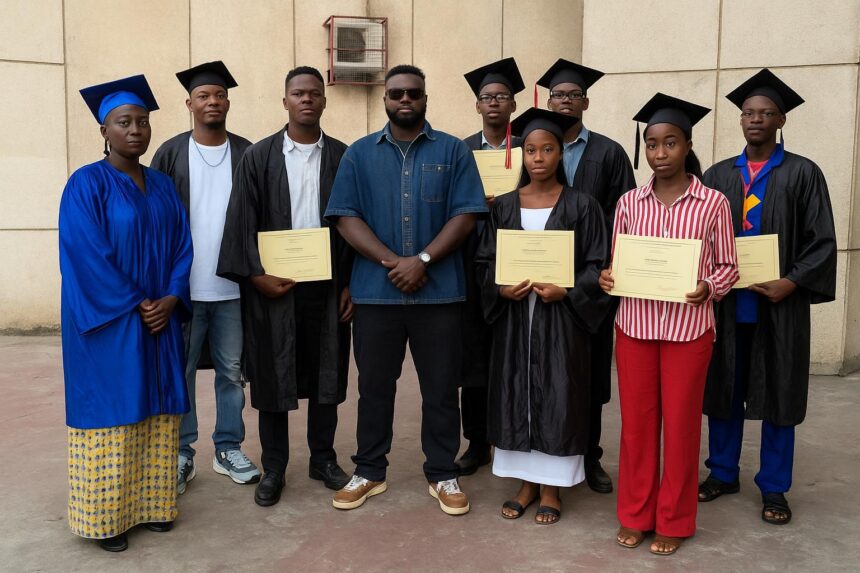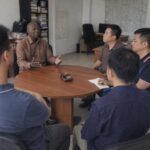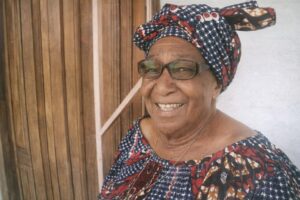Celebration in Brazzaville
Applause filled a packed hall in downtown Moungali as Adistrat, the six-month-old digital school, presented diplomas to thirty freshly trained marketers. The 24 October ceremony, placed under the warm patronage of rapper-entrepreneur Diesel Gucci, crowned the institution’s very first class and signalled wider ambitions.
- Celebration in Brazzaville
- Practice-First Curriculum
- Star Power for Motivation
- Diesel Gucci’s Message
- A Student Becomes Teacher
- Why Digital Skills Matter
- Affordability and Access
- Gender Balance Efforts
- Partnering with Government Initiatives
- Looking Beyond Brazzaville
- Measuring Impact
- A Growing Digital Commons
- Job Market Outlook
- What Graduates Plan Next
- Future Courses on the Horizon
- A Signal for Congo’s Digital Decade
- How to Apply
Practice-First Curriculum
Launched in March, Adistrat built its programme around 80 percent practical workshops and 20 percent theory. Students spent mornings mastering social-media campaigns, afternoons editing videos and evenings pitching mini-start-ups. The goal, says director Aimée Grazelia Mianzenza, is to turn graduates into confident founders rather than perpetual job seekers.
Star Power for Motivation
Alongside resident tutors, industry voices stepped in each week. Franco-Congolese hitmaker Niska spoke candidly about monetising a million-strong audience. Local e-commerce owner Karel Ngouamba dissected algorithms behind his rise. Such encounters, participants say, transformed abstract slides into tangible career maps and built priceless professional networks.
Diesel Gucci’s Message
Dressed in his trademark orange jacket, Diesel Gucci congratulated the alumni for “choosing action over hesitation.” He urged them to keep studying analytics and promised to open his own fan-engagement data to the three best final projects. “Training opportunity makers means investing in tomorrow,” the artist insisted.
A Student Becomes Teacher
Chris Willy Ibouanga embodies that promise. Arriving last semester unable to identify a hashtag, he now lectures on community management. “The classes were tough: every assignment had a client, a deadline, real money at stake,” he recalls. His promotion proves the school’s fast-track model can cascade expertise.
Why Digital Skills Matter
Congo-Brazzaville counts more than two million smartphone users, according to telecom figures. Yet many small firms lack basic online visibility. Economists argue that bridging this gap could unlock thousands of local micro-jobs. By specialising in search optimisation, design and e-commerce logistics, Adistrat hopes to feed that demand.
Affordability and Access
Tuition for the six-month course stands at 250 000 FCFA, roughly the price of a mid-range smartphone. The school offers staggered payment plans and a merit-based scholarship covering half the fees. Sponsors, including Brazzaville’s Chamber of Commerce, provided laptops for students who previously relied on shared cybercafés.
Gender Balance Efforts
Forty percent of the inaugural class are women. Some, like graphic designer Kelly Malonga, entered after maternity leave. “Digital work lets me stay creative and still be near my young son,” she says. Adistrat now plans a women-only evening bootcamp to push the figure beyond half.
Partnering with Government Initiatives
The Ministry of Posts, Telecommunications and Digital Economy has repeatedly highlighted start-up education as a pillar of the national development plan. Officials present at the ceremony welcomed Adistrat’s results, noting that private actors complement public coding hubs such as Talangai’s digital village by adding market-oriented skills.
Looking Beyond Brazzaville
Applications already arrive from Pointe-Noire and Dolisie. To reach them, management is negotiating a hybrid model: two months of in-person labs followed by cloud-based mentoring. Portable studio kits will allow learners to film content in their own neighbourhoods, reducing accommodation costs and keeping the training firmly local.
Measuring Impact
A dedicated dashboard tracks each graduate for twelve months, monitoring revenue, contracts and community engagement. Early data show that seven of the thirty alumni have already billed clients, ranging from wedding photographers to a Kisantu-based cocoa co-operative. The information guides course tweaks and reassures future sponsors.
A Growing Digital Commons
Beyond individual success, lecturers encourage open-source collaboration. Every project deck is archived on a public Git repository, allowing next intakes to remix and improve campaigns. This culture of sharing, says pedagogy lead Pascal Mvoula, accelerates nationwide digital literacy and prevents knowledge from remaining locked inside classrooms.
Job Market Outlook
Regional recruiters confirm demand. “Brands crave people able to write code one day and craft a TikTok story the next,” observes Dally Nkounkou, HR manager at an oil-services firm pivoting to e-commerce. He estimates that integrated digital roles could grow by 15 percent annually if broadband access continues expanding.
What Graduates Plan Next
Several laureates have pooled savings to launch a shared agency, Kulture Lab, targeting small restaurants in Poto-Poto. Their launch campaign offers menu photography, Facebook ads and delivery-app registration for a flat fee. “Our teachers insisted on solving immediate neighbourhood problems; that’s exactly what we intend,” explains co-founder Clarisse Dikouala.
Future Courses on the Horizon
Next February the school will introduce modules on artificial-intelligence tools for small business. Talks are under way with a local bank to bundle micro-loans with the certificate, allowing graduates to buy equipment without punitive interest. Director Mianzenza insists any expansion will keep the same hands-on DNA.
A Signal for Congo’s Digital Decade
Adistrat’s maiden graduation illustrates a broader shift: digital skills are becoming a passport to economic participation for Congo’s youth. By pairing accessible tuition with celebrity mentorship and measurable outcomes, the school offers a template other provinces could emulate, fuelling inclusive growth and promoting entrepreneurial resilience across the republic.
How to Apply
Registrations for the second intake open online this week. Prospective students must submit a one-minute video pitch and pass a basic computer-literacy test. Interviews take place on campus, with results published before Christmas, allowing successful applicants to arrange funding and accommodation well in advance.






















